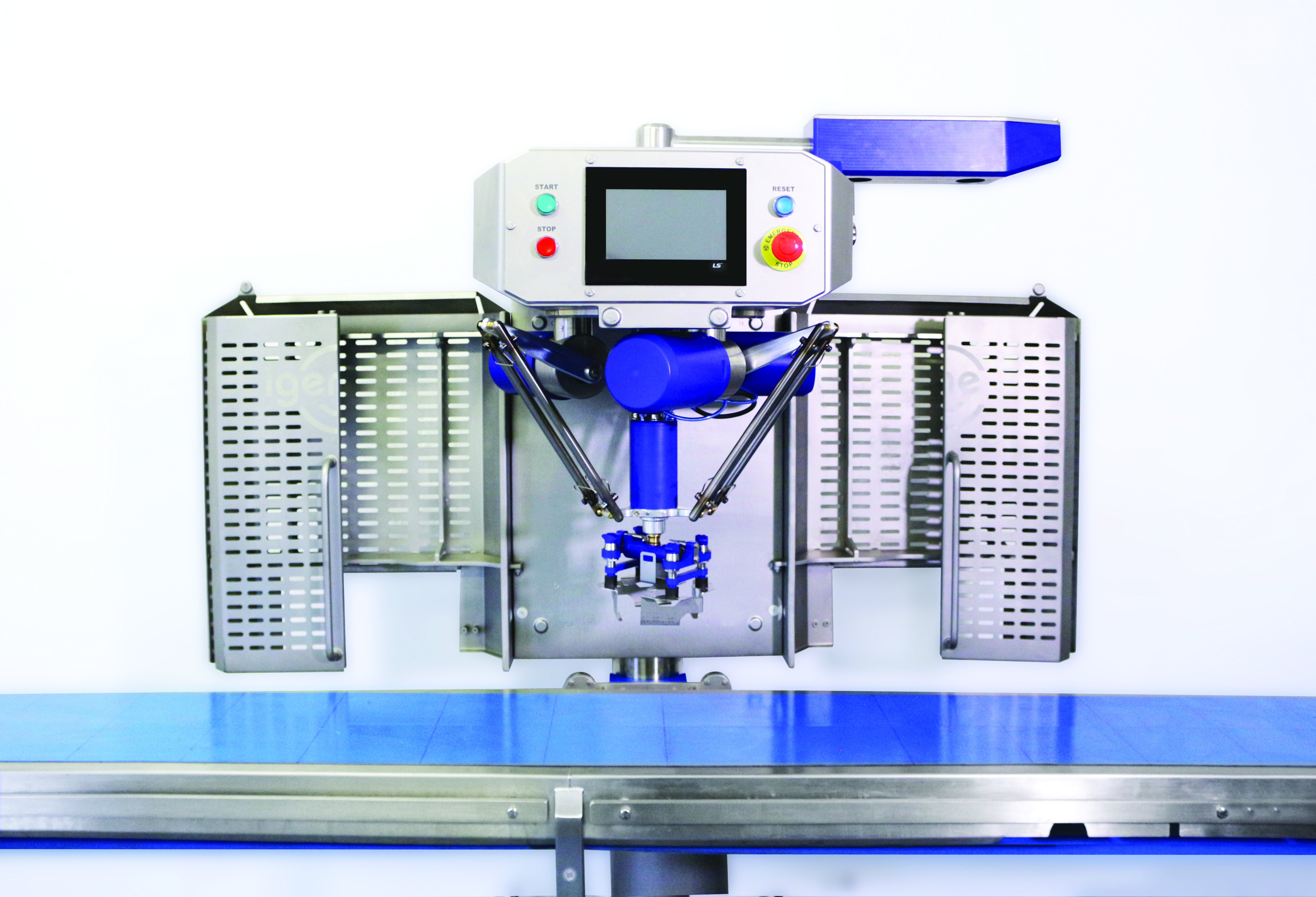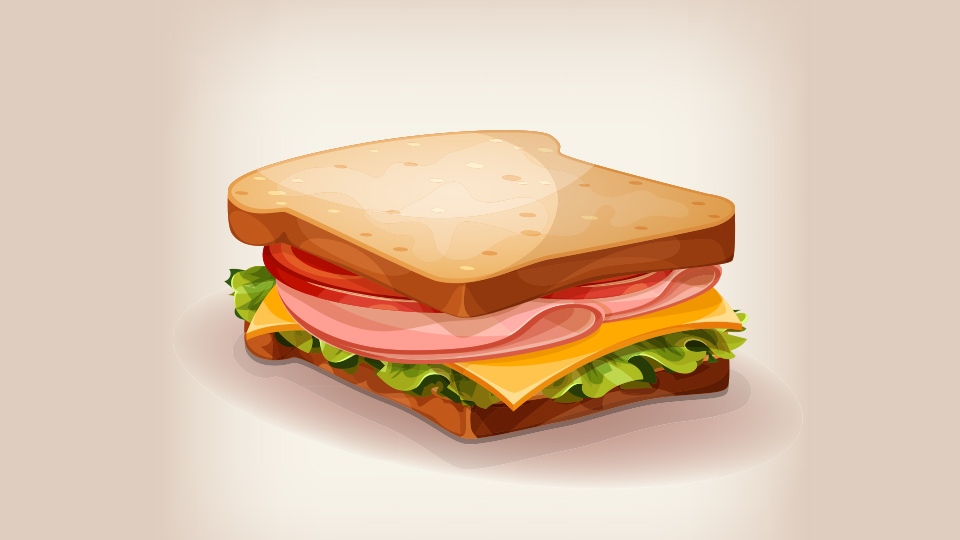Project lead Dr Baihua Li, of the School of Science, hopes the research with Millitec Food Systems will “empower a range of new automation functions on food production conveyors and pipelines”.
Food manufacturing is the largest manufacturing industry within Europe, but the industry faces major problems with labour supply due to increased costs and a shortage of workers willing to undertake less-skilled roles.
Millitec supplies hi-tech manufacturing machinery and a range of robotic products for food production automation that look to plug this gap in the industry.
It has developed a range of technology that can assemble and pack sandwiches, with the intention of reducing intensive labour work required on production conveyors.
Their current sandwich-assemblers are able to assist in the sandwich-making process – for example, they can butter bread and cut sandwiches – but they are unable to undertake tasks that require them to differentiate between items, such as selecting salad toppings to put inside a sandwich.
The project with Loughborough University looks to take the robotic technology to the next level of intelligence.
Dr Li and her team of researchers are to develop machine vision and embedded artificial intelligence (AI) technology for the robot manipulators that will enable them to recognise a variety of items and carry out more advanced tasks such as picking up the right elements in the right amount and order.
They will investigate using a low-cost reliable camera and sensing system on Millitec’s ‘Delta robots', which, in essence, will allow the machines to ‘see’.
They will then develop algorithms that train the robots to recognise various breads and food ingredients, and accurately detect their location and orientation.

Millitec’s Delta robot.
The academics will create the algorithms using ‘deep learning’ – a method of teaching a machine how to carry out tasks automatically without explicit human instructions.
This involves collecting thousands of images and getting a computer system to analyse them, so it learns what different items look like.
As well as being taught how to identify food items, the Millitec robots will be trained to spot and deal with errors on production conveyors, such as missing ingredients or items in the wrong position.
The developed technology will be deployed as an embedded system on Millitec’s existing automation machines, meaning the prepacked sandwich you purchase from the petrol station in the near future could have been made from start to finish by robots.

The machines will be taught how to differentiate between different food items – meaning one day the sandwich you purchase may have been prepared entirely by robots. Image courtesy of Getty Images.
Dr Li commented: “Loughborough's Computer Science department has a solid track record and expertise in AI.
“Industry presents new challenges to our research and this project will deal with various challenges in real-world factory conditions and meet the commercial requirements in accuracy, safety and speed.
“The developed robust vision algorithms and camera-based sensing system will also reduce the system manufacturing cost.
“We will transfer the latest advances of our research in machine vision, deep learning and robotics to drive innovation for high care food manufacturing.
“Successful development and commercialisation of the robotics system will significantly reduce the human workforce and improve production quality and efficiency, allowing employees to focus on higher-value activities.”
Richard Ledger, Managing Director of Millitec, said: “We’re thrilled to be developing the latest range of food production robotics in conjunction with Loughborough University.
“Throughout our 15 years in the industry, we have seen the challenges presented by skills shortages, and a clear need for a technological solution to support food manufacturers.
“This development project will be a major leap forward in food production automation.”
This research is a 24-month KTP (Knowledge Transfer Partnership)* project, jointly funded by Millitec and Innovate UK.
KTPs aim to help businesses improve their competitiveness and productivity through the better use of knowledge, technology and skills that reside within the UK knowledge base.
For further information on Loughborough University’s Computer Science department, click here.

